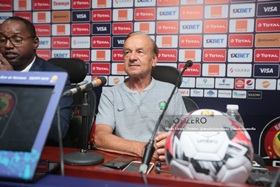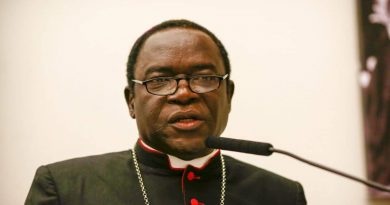INEC to Consult ACF, Afenifere, Parties, Others on Extra Polling Units
Iyobosa Uwugiaren in Abuja
The Independent National Electoral Commission (INEC) has said it has decided to engage stakeholders on the need to expand voter access to polling units by creating more units across the country.
This, it said, is part of its preparation for 2023 general election, adding that other upcoming activities including continuous voter registration (CVR) would be items in the agenda for conversation.
A top INEC official, who spoke with journalists in Abuja said in the following days, the commissions will be engaging all major stakeholders, including socio-cultural groups Afenifere, Ohanaeze Ndigbo, Arewa Consultative Forum (ACF); traditional/religious leaders, political parties, civil society groups, media and others, on the beauty of the exercise.
Explaining the motive for the exercise, the INEC official expressed serious concerns about the worsening challenge of voter access to polling units, and outlined some indicative issues to be addressed by the engagements and the commission’s thinking on how to solve the challenge.
‘’As a commission, we do not take the important contributions of stakeholders to the electoral process for granted. These engagements are indeed a continuation of the commitment of the commission to always listen to stakeholders and to do our best to carry them along in all cardinal issues of election management in Nigeria,’’ the INEC boss stated.
Explaining the importance of polling units to the democratic process, he said they are central to the electoral process, and at the very heart of electoral democracy as the basis on which citizens exercise their fundamental rights to vote and to make electoral choices freely.
‘’Consequently, polling units largely shape citizens’ confidence in the electoral process, the levels of participation or apathy, as well as security and safety during elections.
‘’Voter access goes beyond the number of polling units available to voters. It also entails citing polling units in places that are conducive to voting as well as the extent to which the environment of each polling unit provides a good voter experience and implementation of the regulations and guidelines of the commission on Election Day,’’ the source stated.
He added that voter access to polling units in the country has been declining over the years, putting the average number of voters per polling unit in 2019 general election at about 700 nationally, rising to over 2,000 in the Federal Capital Territory, while a specific polling unit in Nasarawa State had over 15,000 voters.
He said: “Some polling units are located in very difficult places that do not encourage voters to participate in elections, particularly persons living with disability. Others are located in places experiencing conflicts or in places under the control of partisan actors.
‘’Moreover, because of inadequate polling units, many voters have to travel long distances to their polling units on Election Day. All these have contributed to low voter turnout at elections, egregious violation of election regulations and guidelines, violence and insecurity.
‘’Crowding at polling units also constitute health and safety issues in this period of the global COVID-19 pandemic.’’
The INEC official explained that repeated attempts by the commission in the past to expand voter access to polling units by establishing new ones and relocating some to better sites have not been successful.
He added that in order to mitigate the challenges, the commission had to resort to stopgap measures such as the creation of “Baby Polling Units,’’ ‘’Voting Points’’ and ‘’Voting Point Settlements,’’ saying the measures have not adequately solved the problem and, in some cases have created new challenges of their own.
The senior official attributed the inability of the commission to routinely expand voter access to polling units to unnecessary politicization of the process by sundry interests in the country, especially by propagating unfounded claims and conspiracy theories about the commission’s intentions.
He said delays arising from opposition to the establishment of polling units have meant that the process comes too close to elections and, therefore, is impossible to complete, saying the level of consultation with stakeholders by the commission may not have been adequate.
Giving a background to the challenge of voter access to polling units, he said the polling unit in the country today is the lowest level of the electoral structure in Nigeria, and probably the most critical point in delivering qualitative elections.
He stated that the current configuration of 119,973 polling units was established by the defunct National Electoral Commission of Nigeria (NECON) in 1996, adding that in the nearly 25-year period, every attempt to review or reconfigure the polling unit structure has been unsuccessful for sundry reasons.
‘’Consequently, the 1996 polling unit configuration was used for 1999, 2003, 2007, 2011, 2015 and 2019 General Elections. When the polling unit structure was established in 1996, it was projected to serve about 50 million registered voters.
‘’However, the number of registered voters for the 1999 General Election was 57.93 million. This rose to 60.82 million in 2003, 61.56 million in 2007 and 73.52 million in 2011,’’ he revealed.
He further explained that although the number declined to 68.83 million for the 2015 General Election – following the cleaning up of the register through the use of Automated Fingerprints Identification System (AFIS) to eliminate double registrants, it rose to 84.04 million in 2019 as a result of the commission embarking on a robust continuous voter registration exercise, as prescribed by law.
The import of this development, he said, is that while the number of registered voters increased from 57.93 million in 1999 to 84.04 million in 2019, which is an increase of 45 per cent, the number of polling units remained the same.
‘’This lack of correlation between the number of registered voters and the number of polling units since 1999 has resulted in congested polling units on Election Day and lack of polling units in many developing sub-urban and newly established settlements.
The effects have been low voter turnout and voter apathy, insecurity at the polling units, disruption of elections and, in the context of the COVID-19 pandemic, unsafe voting environments.
‘’Indeed, presently, the average number of voters per polling unit in Nigeria, which stands at 700, is 37% more than the situation in Ghana. Yet, this could be quite misleading because in some states in Nigeria, the average number of voters per polling unit is well over 4,000,’’ he added.
He said the motive for the planned exercise is in the general interest of Nigeria.



